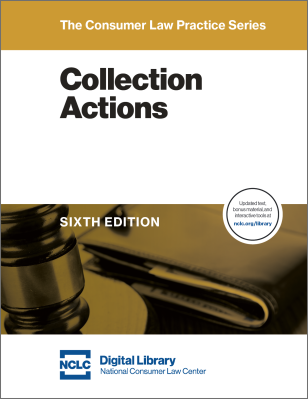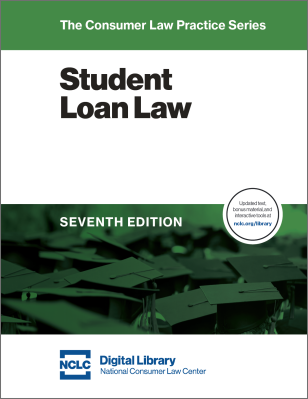Monthly Child Tax Credit Payments Start July 15
The Treasury, starting on July 15, 2021, is sending advance Child Tax Credit payments to eligible families on the 15th of each month, in the amount of up to $300 a month per child under age 6 and up to $250 a month per child under age 18. These families also will receive an additional Child Tax Credit of up to $1,800 per child under age 6 and up to $1,500 per child under age 18 through their 2021 tax return.
To qualify for the advance Child Tax Credit payments, the parent must have filed a 2019 or 2020 tax return and claimed the Child Tax Credit on the return. Alternatively, if the parent did not file a return, the parent qualifies if the parent provided the Internal Revenue Service (IRS) information in 2020 to receive the Economic Impact Payment using the “Non-Filers: Enter Payment Info Here” tool. Otherwise, a qualifying parent can still receive the advance payment by completing the IRS’s Child Tax Credit Non-Filer Sign-Up Tool.
The full credit is available to those with an adjusted gross income on a recent tax return under $150,000 when filing jointly, under $112,500 if filing as head of household, or under $75,000 if a single filer or married and filing a separate return. Those with higher incomes may still receive the credit, though the amount of the credit is reduced and subject to a phaseout as income increases. The parent (or a spouse on a joint return) must have a main home in the United States for more than half the year. For a child to be eligible, the child must be under age 18 at the end of 2021 and have a valid Social Security number.
The IRS has a separate site, the Child Tax Credit Update Portal, that allows parents to check if they are enrolled to receive advance payments, to change their number of dependents, and to provide or update direct deposit information. Taxpayers who may receive advance payments to which they are not entitled can also use the portal to unenroll from advance payments, to avoid having to repay the credit through higher taxes on their 2021 tax return.
All July 15 payments will go to the address on file with the IRS, sent as a direct deposit to a bank account or prepaid card account or as paper check. Any changes made by August 2 on the Child Tax Credit Update Portal will apply to the August 15 payment and to subsequent payments for the rest of the year. Taxpayers who are not enrolled for advanced payments, but who qualify for the Child Tax Credit based on their 2021 income can claim the entire credit, including the amount that would have been paid in advance, when filing their 2021 tax return.
The IRS also has a set of frequently asked questions that may be updated during the year.
Protecting the Monthly Payments from Intercepts to Repay Defaulted Student Loans
Approximately 9 million Americans are in default on their federal student loans. Tax refunds to these borrowers (but not those with private student loans) are subject to intercept pursuant to the Treasury Offset program. This applies even to refunds entirely comprised of the Earned Income Tax Credit and/or the Child Tax Credit. For a discussion of student borrower rights and options to avoid tax refund intercepts, see NCLC’s Student Loan Law § 9.2.
Nevertheless, advance Child Tax Credit payments are not subject to intercept. Section 9611(e)(3) of the American Rescue Plan specifies:
(3) EXCEPTION FROM REDUCTION OR OFFSET.—Any payment made to any individual under this section [which governs the advance Child Tax Credit payments] shall not be—
“(A) subject to reduction or offset pursuant to subsection (c), (d), (e), or (f) of section 6402 or any similar authority permitting offset, or
“(B) reduced or offset by other assessed Federal taxes that would otherwise be subject to levy or collection.
26 U.S.C. § 6402(c) addresses child support offsets; § 6402(d) addresses debts owed to federal agencies (i.e., student loans owed to the Education Department); § 6402(e) addresses state income tax debts; and § 6402(f) addresses unemployment overpayments.
To be clear, the advance monthly Child Tax Credit payments are protected from offset to repay defaulted federal student loans. Nevertheless, the portion of the Child Tax Credit that may be paid out as a refund as part of a tax filer’s annual federal income tax return is not protected from offset and thus may still be seized from borrower’s with defaulted student loans.
Judgment Creditor Garnishment of Direct Deposit of Monthly Child Tax Credit Payments
Child Tax Credit monthly payments arriving in consumers’ bank accounts on the 15th of each month are targets for bank account garnishment if the account holder has an unpaid court judgment. Such a garnishment order on the consumer’s bank is likely to freeze funds in the account up to the amount of the garnishment order. After notice of the garnishment to the consumer, if the consumer does not contest the garnishment within a short period, the funds will be turned over to the judgment creditor. An account holder believing that the funds should not be garnished must persuade a court that frozen amounts in the bank account are exempt from seizure, and thus should not be turned over to the judgment creditor. Instead, the funds should be unfrozen and released to the account holder.
There is no special federal protection for bank account garnishment for Child Tax Credit payments. While the December 2020 legislation providing the second stimulus payments did protection those payments from garnishment, the March 2021 legislation that authorized the third stimulus payment and the advance Child Tax Credit payments did not include any protections from garnishment. The March 2021 legislation was enacted under budget reconciliation rules that allow only certain provisions to be included in the legislation.
Nonetheless, in some circumstances, a child tax credit that has been deposited into a bank account may be protected from garnishment, so the money once frozen will not be turned over to the judgment creditor if the consumer acts quickly. In certain circumstances state or federal protections will also prevent the funds in the account from being frozen even temporarily.
Avoiding a Freeze of an Advance Child Tax Credit Payment
A U.S. Treasury rule provides an important protection for bank accounts into which Social Security (including Social Security disability), Supplemental Security Income (SSI), Veterans Administration (VA), federal Railroad Retirement, federal Railroad Unemployment and Sickness, federal Civil Service Retirement System, or federal Employee Retirement System benefits have been directly deposited. If these payments have been directly deposited within the two months before the garnishment, special rules apply that require the bank to protect two months’ worth of the funds. That amount can neither be frozen nor seized. Importantly, the amount that was deposited is protected, whether or not the amount in the account at the time of the garnishment can be traced to those federal benefits. See NCLC’s Collection Actions § 14.5.4.
If these federal benefits were directly deposited into an account, the Child Tax Credit payment is fully protected from freeze if the amount in the account at the time of the garnishment order does not exceed the amount of the eligible federal benefit payments (not counting the Child Tax Credit payment) that were deposited within the preceding two months. One strategy before the 15th of a given month is to transfer or withdraw enough out of the account so that the amount in the account plus the new Child Tax Credit deposit is below this protected amount.
States also have exemption laws that protect all bank accounts, not just those protected by the Treasury Rule, if the funds in the account at the time of the garnishment fall below protected levels. In a number of these states, the protection is self-executing: the debtor’s bank is required automatically to protect the account, or a certain amount in the account, so that the garnishment will not even freeze the amount automatically protected in the account. Examples include: Delaware protects all amounts in a bank account from freeze or seizure; Massachusetts protects $2,500; New York protects up to $3,600; California protects $1,788; Nevada protects $4,000; and Washington State protects $1,000.
Maine (effective September 28, 2021) protects $3000 plus clarifies that the exemption law also fully protects the advance Child Tax Credit. Connecticut automatically protects $1,000 if there have been identifiable deposits of wages or certain exempt benefits within the preceding days. Many other states have an earmarked exemption for an amount in a bank account, and state rules of court or local practice may treat this protection as automatic.
Claiming the Advance Child Tax Credit Payment as Exempt
In states with a non-automatic protection for funds in a bank account, the burden will be on the consumer to ask the court to unfreeze the funds because they are exempt from garnishment. The consumer should receive notice of the garnishment with instructions on how to contest the seizure. Consumers then have a number of grounds to claim that amounts in a bank account, including the payments under the Child Tax Credit program, are exempt from seizure and should be available to the consumer:
- Six states have taken actions to protect child tax credits in a bank account (California, Colorado, Maine, New York, Ohio, and Virginia).
- Many state exemption statutes list the specific public benefit programs whose payments are exempt, and some exemption statutes apply broadly to “public benefits” or “public assistance benefits,” and these may apply to Child Tax Credit payments. See NCLC’s Collection Actions § 14.3.2, Appx. H. See alsoIn re Hardy, 787 F.3d 1189 (8th Cir. 2015) (Mo. law); In re Moreno, 2021 WL 1904189 (Bankr. W.D. Wash. May 11, 2021); In re Farnsworth, 558 B.R. 375 (Bankr. D. Idaho 2016); In re Hatch, 519 B.R. 783 (Bankr. S.D. Iowa 2014); In re Vazquez, 516 B.R. 523 (Bankr. N.D. Ill. 2014); Massachusetts Attorney General Guidance: Advanced Payments of the Child Tax Credit Provided Pursuant to the American Rescue Plan Act of 2021 Are Exempt from Seizure by Creditors and Debt Collectors (July 16, 2021). For example, a number of states recently interpreted “public benefits” or similar terms found in state exemption statutes as applicable to federal stimulus payments. See, e.g., Massachusetts Attorney General Guidance (April 13 2020) (stimulus payments are exempt from garnishment under Massachusetts law as paid as “public assistance”); Minnesota Governor's Emergency Executive Order 20-50 (May 4, 2020) (stimulus payments defined as “government assistance based on need”); New York Attorney General Guidance on CARES Act Payments (April 17, 2020) (stimulus payments are exempt as “public benefits”).
- A significant number of states issued emergency orders during the COVID-19 pandemic protecting bank accounts from any attempt at garnishment, and a few such orders are still in effect, thus preventing any freeze of an account.
- About a dozen states protect a certain dollar amount in a bank account, although those amounts vary significantly from state to state.
- About 20 states have wildcard exemptions that can be applied in whole or in part to bank accounts, and not just to other property subject to judgment creditors. Applying a portion of the wildcard amount to the bank account can thus exempt the Child Tax Credit payment.
States have many other protections that exempt certain funds in a bank account from garnishment but that do not protect an advance Child Tax Credit payment. Examples are educational savings accounts, workers compensation payments, and specified public benefit payments under state law. These specialized exemptions are not included in the state-by-state listing found in the next section, infra, but are cited in detail for each state at NCLC’s Collection Actions Appx. H.
One exception, because of its importance, is that the listing below does include state wage garnishment laws that provide, or are interpreted to provide, that an exemption for wages continues for at least a certain time after the wages are deposited in a bank account. In these states, the portion of the deposited wages that would have been exempt from a garnishment order sent to the employer (the exempt amount being the greater of the amount protected under federal or state law) continues to be exempt after deposit. See NCLC’s Collection Actions § 14.2.
50-State Listing of Protections from Bank Account Garnishment Applicable to Child Tax Credit Payments
The following state-by-state listing of exemptions from bank account garnishment is derived from NCLC’s Collection Actions Appx. H (subscription required) and from NCLC’s No Fresh Start in 2020: Will States Let Debt Collectors Push Families into Poverty in the Wake of a Pandemic? (free to the public). More detail can be found in those sources and elsewhere in a given state. As described above, this listing (except for wage garnishment exemptions) does not include the many special state exemptions for a particular type of bank account deposit not applicable to an advance Child Tax Credit payment. These other exemptions for specialized type of deposits are cited in NCLC’s Collection Actions Appx. H.
Please email [email protected], attention “state exemptions,” regarding any updates or additions to this list, including information about additional states that treat bank account exemptions as self-enforcing. In addition, consumer stories concerning seizure of advance Child Tax Credit payments will be most welcome.
Alabama: $8,750 wildcard exemption.
Alaska: $1,890 ($2,970 if debtor is sole support of a family) in a bank account is protected for an individual who does not receive regular earnings.
Arizona: $300 earmarked exemption for bank account.
Arkansas: $500 wildcard exemption for personal property.
California: A self-executing protection for $1,788 in a bank account. In addition, the Attorney General’s June 8, 2021 Statement states that, “April 23, 2020, Executive Order makes it unlawful to garnish any financial assistance provided to individuals as a result of the COVID-19 pandemic. The Executive Order’s protection extends to the Child Tax Credit, which was enacted as part of the American Rescue Plan in response to the pandemic.” There is also an automatic exemption for $1,750 ($2,600 for two or more depositors) of directly deposited public benefit funds, or the first $3,500 ($5,250 for two or more depositors) of directly deposited Social Security funds. In addition, the rest of the account is exempt insofar as it consists of exempt benefits. The exempt portion of wages remains exempt after deposit.
Colorado: Colo. Rev. Stat. § 13-54-102(1)(o) specifies that “[t]he full amount of any federal or state income tax refund attributed to . . . a child tax credit” is “exempt from levy and sale under writ of attachment or writ of execution.” In addition, exempt portion of wages remains exempt after deposit.
Connecticut: $1,000 if identifiable electronic deposits of wages or certain exempt benefits were made within the preceding 60 days.
Delaware: Prohibits garnishment of bank accounts.
District of Columbia: D.C. Code § 28–3814 states: “During a public health emergency and for 60 days after its conclusion, no creditor or debt collector shall, with respect to any debt: [...] Initiate, threaten to initiate, or act upon any statutory remedy for the garnishment, seizure, attachment, or withholding of wages, earnings, property, or funds for the payment of a debt to a creditor.” The public health emergency was renewed on May 17, 2021, and remains in effect for so long as District of Columbia law extends the emergency, which is currently July 25, 2021, or until rescinded. This means the protections are currently set to expire on September 23, 2021. In addition, there is a wildcard exemption of $850 for any property, plus up to $8,075 of any unused portion of the homestead exemption.
Florida: $1,000 constitutional wildcard, plus, if debtor does not claim a homestead exemption, a $4,000 statutory wildcard. The exempt portion of wages remains exempt after deposit.
Georgia: $5,000 wildcard for “real or personal property.
Hawaii: No protection.
Idaho: Federal and state public assistance; exempt portion of wages remains exempt after deposit.
Illinois: Public assistance and a $4,000 wildcard exemption.
Indiana: $350 earmarked exemption for choses in action, deposit accounts, or cash.
Iowa: Any public assistance benefit; exempt portion of wages remains exempt after deposit.
Kansas: No protection.
Kentucky: Public assistance.
Louisiana: Public assistance.
Maine: H.P. 542-L.D. 737 (effective September 28, 2021) amends the existing exemption for child tax credits at Me. Stat. tit. 4, § 4422(13)(A) to clarify that the exemption applies to “any” child tax credit and also § 4422(17) exempts an additional $3,000 in a bank account. The $400 wildcard exemption for any property increases to $500.
Maryland: $6,000 wildcard exemption.
Massachusetts: Self-executing protection for $2,500; public assistance exempt; Massachusetts Attorney General Guidance: Advanced Payments of the Child Tax Credit Provided Pursuant to the American Rescue Plan Act of 2021 Are Exempt from Seizure by Creditors and Debt Collectors (July 16, 2021) (advance child tax credit exempt as “public assistance”).
Michigan: No protection.
Minnesota: Government assistance; exempt portion of wages remains exempt after deposit.
Mississippi: $5,000 of federal tax refund proceeds; $10,000 wildcard exemption, which may be applied to “cash on hand”; if age 70 or older, $50,000 wildcard for property of any type.
Missouri: $600 wildcard for any property; additional $1,250 wildcard for the head of a family plus $350 for each unmarried, dependent minor child.
Montana: Exempt portion of wages remains exempt after deposit.
Nebraska: $5,000 wildcard exemption; exempt portion of wages remains exempt after deposit.
Nevada: $400 self-executing protection; $10,000 wildcard exemption.
New Hampshire: Wildcard exemption ranging from $1,000 to $8,000 depending on what other exemptions debtor takes.
New Jersey: $1,000 exemption for personal property of any kind.
New Mexico: Order of the New Mexico Supreme Court (effective June 8, 2020) suspends the issuance of new post-judgment writs of garnishment or writs of execution in consumer debt collection cases until lifted by a future order of the court. In addition, there is a $500 wildcard exemption ($1,000 for a debtor who is married or head of household), plus a second wildcard of $5,000 if debtor does not claim a homestead exemption.
New York: Self-executing protection for $2,664 to $3,600 (depends on applicable minimum wage in a locality). In addition, S5923A/A6617A (May 15, 2021) states that, “Any payments to individuals, including tax refunds, recovery rebates, refundable tax credits, and any advances of any tax credits, under the federal Families First Coronavirus Response Act (FFCRA), Coronavirus Aid, Relief, and Economic Security Act of 2020 (CARES Act), Consolidated Appropriations Act of 2021, and American Rescue Plan Act of 2021 (ARPA) are exempt from application to the satisfaction of a money judgment.” The bill also explicitly prohibits bank setoff of these exempt funds. A debtor who does not claim a homestead exemption also has a $1,150 exemption that can be used for personal property, cash, or a bank account.
North Carolina: $5,000 wildcard exemption available only if debtor does not claim a homestead exemption; exempt portion of wages remains exempt after deposit.
North Dakota: $3,750 wildcard exemption ($7,500 for head of family, plus $10,000 if debtor does not claim a homestead exemption.
Ohio: Ohio Rev. Code Ann. § 2329.66(A)(9) exempts payments under Internal Revenue Code section that applies to tax credits. In addition, $500 in a bank account is exempt.
Oklahoma: Exempt portion of wages remains exempt after deposit.
Oregon: $400 wildcard exemption; exempt portion of wages remains exempt after deposit.
Pennsylvania: $300 wildcard.
Puerto Rico: Exempt portion of wages remains exempt after deposit.
Rhode Island: No protection.
South Carolina: $6,325 exemption for cash or liquid assets if debtor does not use homestead exemption, plus up to $6,325 in unused personal property exemptions.
South Dakota: $5,000 wildcard exemption ($7,000 if head of family).
Tennessee: $10,000 wildcard exemption.
Texas: No protection.
Utah: No protection.
Vermont: $700 earmarked exemption; wildcard of $400 plus up to $7,000 of certain unused exemptions; moneys granted to persons as assistance.
Virginia: Va. Code Ann. § 34-26(9) exempts “[t]hose portions of a tax refund or governmental payment attributable to the Child Tax Credit or Additional Child Tax Credit … .” Plus $6,000 wildcard exemption.
Virgin Islands: No protection.
Washington State: House Bill 1525 (effective July 25, 2021 and expiring July 1, 2025) automatically protects as much as $1,000 in a person's bank account for consumer and student loan debt ($500 for all other debts) by instructing financial institutions not to attach the automatically protected sum to a writ of garnishment. In addition, consumers may still follow the existing exemption claim process to protect as much as $2,500. See also In re Moreno, 2021 WL 1904189 (Bankr. W.D. Wash. May 11, 2021) (child tax credit is exempt "public assistance").
West Virginia: $1,100 earmarked exemption; $1,000 wildcard for any personal property.
Wisconsin: $5,000.
Wyoming: No protection.
When Child Tax Credit Payments Arrive by Paper Check
A Child Tax Credit payment sent by paper check (instead of direct deposit) obviously will not be frozen in a bank account if the consumer cashes the check without depositing it into a bank account. The consumer’s own bank may be willing to inform the consumer whether a garnishment order is in place before the consumer presents the check to be cashed.
Friends or relatives may be willing to provide cash in return for endorsement of the check to them, but they may face significant problems depositing an endorsed check into their own account. Banks are concerned about extensive fraud involving paper government checks and will be cautious about depositing them into someone else’s account. A bank may either refuse or request a hold on the funds in the friend’s account.
Clients should be warned about expensive check cashing companies. Walmart stores and some other locations may provide more affordable options for cashing the check. If other means of cashing the check are unavailable, the risk of bank account garnishment must be weighed against the high cost of check cashing companies.
Last updated: July 19, 2021.




